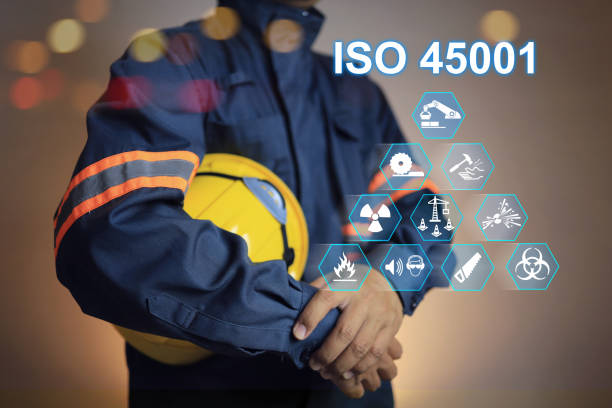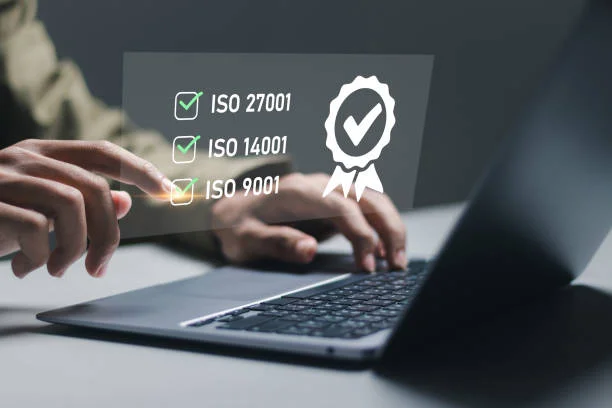ISO 21001:2018 Certification: A Comprehensive Guide to Educational Organizations Management Systems
In today’s competitive global environment, educational institutions are under increasing pressure to ensure quality and accountability. The ISO 21001:2018 certification offers a powerful solution for educational organizations seeking to demonstrate their commitment to excellence and continual improvement. This international standard provides a framework for improving the quality of education, enhancing learner satisfaction, and aligning educational services with global standards.
In this detailed guide, we’ll explore what ISO 21001:2018 certification is, its benefits, and how educational institutions can obtain it.
What is ISO 21001:2018?
ISO 21001:2018 is an international standard developed by the International Organization for Standardization (ISO) specifically for educational organizations management systems (EOMS). It provides guidelines for improving processes, aligning educational offerings with learner needs, and enhancing overall performance.
ISO 21001:2018 is applicable to any organization that provides educational products or services, whether it is a school, university, training center, or corporate learning environment. It focuses on improving educational management systems to meet learners’ expectations and achieve educational objectives.
Key Features of ISO 21001:2018
ISO 21001:2018 is designed to help educational organizations:
- Improve Learner Satisfaction
By focusing on meeting learners’ needs and expectations, ISO 21001:2018 ensures that education and training programs are aligned with outcomes that learners value. - Enhance the Quality of Educational Programs
The standard supports continuous improvement in teaching methodologies, curriculum development, and overall learning experiences. - Increase Accessibility and Inclusivity
ISO 21001:2018 encourages organizations to design educational services that are accessible and inclusive for all learners, regardless of their backgrounds or needs. - Foster Collaboration
By promoting clear communication and collaboration between stakeholders (students, parents, faculty, regulatory bodies), educational institutions can deliver a more effective learning environment. - Support Global Standards in Education
Educational organizations that comply with ISO 21001:2018 align themselves with international best practices, enhancing their reputation and competitiveness.
Structure and Principles of ISO 21001:2018
ISO 21001:2018 adopts a process-based approach and follows the Plan-Do-Check-Act (PDCA) cycle, promoting continual improvement. The standard’s structure is aligned with ISO’s High-Level Structure (HLS), making it easier to integrate with other management systems like ISO 9001 (quality management) or ISO 45001 (occupational health and safety).
The standard is based on several key principles:
- Focus on Learners and Other Beneficiaries
Educational organizations should prioritize the needs and expectations of learners, their parents, guardians, and other beneficiaries. - Visionary Leadership
Top management is responsible for leading and fostering a commitment to education quality and organizational improvement. - Engagement of People
The involvement and engagement of staff, educators, and other stakeholders are essential to creating an effective educational environment. - Process Approach
The effectiveness of education is improved by managing educational processes and interrelated activities as a coherent system. - Evidence-Based Decisions
Decisions within the educational organization should be based on analysis and evaluation of data and information. - Relationship Management
Organizations should manage relationships with relevant stakeholders (students, regulatory bodies, partners) to create value and enhance educational services.
Benefits of ISO 21001:2018 Certification
- Improved Educational Quality
ISO 21001:2018 certification helps educational institutions ensure that their programs meet high-quality standards, leading to better learning outcomes and student satisfaction. - Enhanced Reputation
Certification demonstrates a commitment to educational excellence, which can attract students, parents, and partnerships, thereby enhancing the institution’s credibility and competitive edge. - Learner-Centered Approach
By focusing on the needs of learners, ISO 21001:2018 helps institutions design programs that are more engaging, relevant, and beneficial to their target audience. - Increased Efficiency and Effectiveness
Implementing a structured management system leads to more efficient processes, reducing waste and optimizing the use of resources in the delivery of educational services. - Global Recognition
ISO 21001:2018 certification is recognized worldwide, making it easier for educational institutions to operate in the international market and attract global learners. - Accessibility and Inclusivity
The standard encourages the creation of an inclusive learning environment, ensuring that educational programs are accessible to all, including individuals with disabilities or those from disadvantaged backgrounds. - Continuous Improvement
ISO 21001:2018 fosters a culture of continual improvement, ensuring that educational services are regularly evaluated and updated to meet evolving learner and market needs.
How to Obtain ISO 21001:2018 Certification
Obtaining ISO 21001:2018 certification involves several key steps, and it requires a commitment to improving your organization’s management processes. Here’s a step-by-step guide:
- Understand the Standard
Before starting the certification process, familiarize yourself with the ISO 21001:2018 requirements. You can obtain a copy of the standard from the ISO website and conduct an internal review of your current management systems. - Conduct a Gap Analysis
Compare your organization’s current educational processes and systems with the requirements of ISO 21001:2018. Identify any gaps and areas that need improvement. - Develop and Implement an EOMS
Based on the gap analysis, develop an Educational Organizations Management System (EOMS) that meets ISO 21001:2018 standards. This includes establishing policies, setting educational objectives, and defining processes to ensure consistent quality. - Internal Audit
Once your EOMS is in place, conduct an internal audit to assess compliance with ISO 21001:2018 requirements. This step helps identify potential areas for improvement before applying for certification. - Management Review
Senior leadership should review the EOMS to ensure its effectiveness and alignment with the institution’s educational goals and learner needs. - Choose a Certification Body
Select an accredited third-party certification body that offers ISO 21001:2018 certification services. The certification body will conduct an external audit of your EOMS. - Certification Audit
The certification body will perform a rigorous audit of your Educational Organizations Management System to verify that it complies with ISO 21001:2018 standards. If your system meets the requirements, you will receive the certification. - Surveillance Audits
After obtaining certification, your organization will be subject to periodic surveillance audits to ensure continued compliance with ISO 21001:2018.
Who Should Get ISO 21001:2018 Certified?
ISO 21001:2018 is applicable to all types of educational organizations, including:
- Primary and secondary schools
- Higher education institutions (colleges and universities)
- Vocational and technical schools
- Training centers
- Corporate education departments
- E-learning platforms and online education providers
Whether you are a large university or a small training organization, ISO 21001:2018 certification can help improve the quality of your educational services and boost your reputation in the market.
ISO 21001:2018 vs. ISO 9001
While both ISO 21001:2018 and ISO 9001 are management system standards, they have different focuses. ISO 9001 is a general quality management standard applicable to all industries, while ISO 21001:2018 is specifically designed for educational organizations. It addresses the unique challenges faced by educational providers, such as learner satisfaction, teaching quality, and curriculum development.
Many educational institutions choose to pursue both certifications to ensure comprehensive management practices that cover both quality and educational processes.
Conclusion
In today’s fast-evolving education sector, obtaining ISO 21001:2018 certification is an effective way for educational organizations to demonstrate their commitment to quality, inclusivity, and continuous improvement. By adopting this international standard, institutions can enhance their educational services, improve learner satisfaction, and gain a competitive edge in the global education market.
If you are looking to elevate the quality of your educational services and align with international best practices, obtaining ISO 21001:2018 certification is a crucial step toward achieving your goals.
Start your certification journey today and provide learners with the high-quality education they deserve!







